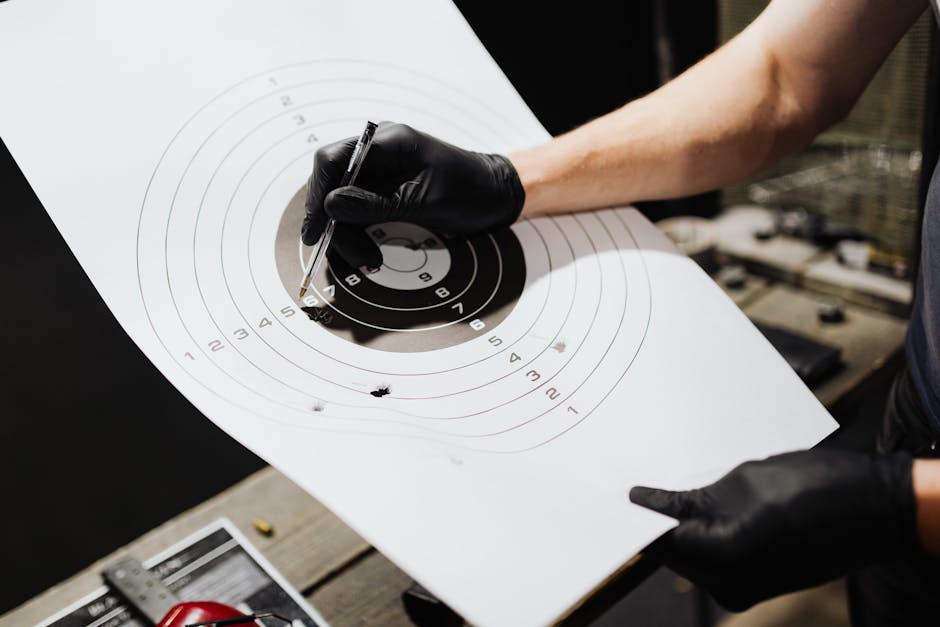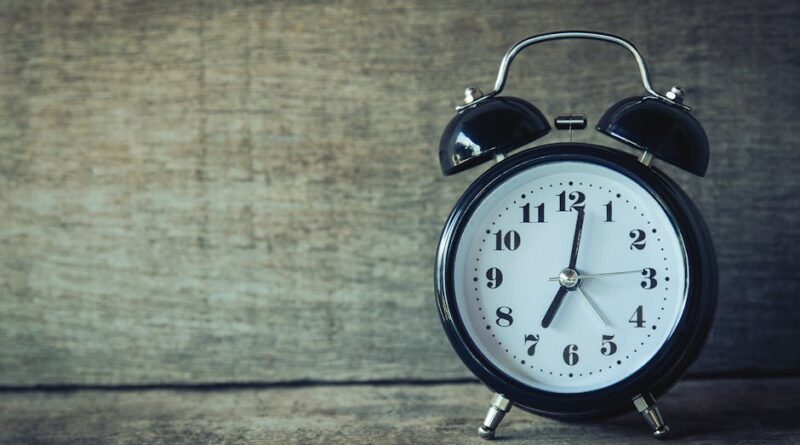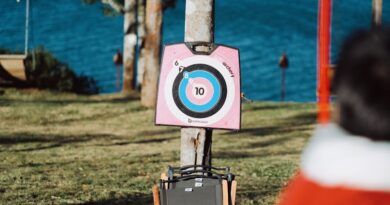Tips for Maintaining Firearm Accuracy Over Time
Whether you are a seasoned marksman or a beginner in the world of shooting sports, one thing is certain: maintaining firearm accuracy is crucial. Over time, various factors can affect the precision and consistency of your shots, leading to decreased performance and frustration. In this comprehensive guide, we will delve into the tips and strategies for preserving firearm accuracy over time. From cleaning and maintenance practices to proper storage and handling, we will explore the best practices that will help you keep your firearms in top condition.
The Importance of Firearm Accuracy
Before we delve into the tips for maintaining firearm accuracy, let’s first understand why precision is so critical in shooting sports and self-defense. Accuracy is the ability to consistently hit your target with precision, which is essential for a variety of reasons. Whether you are a hunter aiming for a clean kill, a competitive shooter striving for the bullseye, or a person defending themselves in a life-threatening situation, having a firearm that delivers accurate shots can mean the difference between success and failure.
Firearm accuracy is not just about hitting the target; it is also about safety. A gun that consistently shoots where you aim it is less likely to cause unintended harm to bystanders or property. In addition, accurate shooting can boost your confidence and enjoyment of the sport, leading to a more fulfilling shooting experience.
Cleaning and Maintenance
One of the most critical factors that can affect firearm accuracy is the cleanliness and maintenance of your gun. Over time, residue from powder, dirt, and debris can build up in the barrel, chamber, and other critical components, leading to a decrease in accuracy. Regular cleaning and maintenance are essential to ensure that your firearm functions properly and delivers consistent results.
When cleaning your gun, make sure to use high-quality cleaning kits and solvents specifically designed for firearms. Start by disassembling the gun and removing any visible dirt or residue. Use a cleaning rod and patches to clean the barrel thoroughly, paying special attention to the lands and grooves. Inspect the chamber, breech face, and other components for dirt and residue, and clean them accordingly.
After cleaning, lubricate the moving parts of the gun with a high-quality gun oil to ensure smooth operation. Be sure to follow the manufacturer’s guidelines for lubrication and maintenance, as over-oiling can attract dirt and debris, leading to malfunctions. Regularly inspect your gun for signs of wear and tear, and replace any worn or damaged parts to maintain optimal performance.

By Tima Miroshnichenko via Pexels
Sight Alignment and Adjustment
Another crucial aspect of maintaining firearm accuracy is proper sight alignment and adjustment. The alignment of your sights plays a significant role in determining where your shots will land on the target. If your sights are misaligned or improperly adjusted, you may struggle to hit your target consistently.
Start by ensuring that your sights are properly aligned with the target. The front sight should be centered in the rear sight, with equal amounts of light visible on either side. Make sure that the top of the front sight is level with the top of the rear sight, and that the sights are positioned at the same height above the bore axis.
If your shots consistently land off-target, you may need to adjust your sights. Most modern firearms are equipped with adjustable sights that allow you to fine-tune your point of impact. Use a sight adjustment tool or a small screwdriver to make precise adjustments to the windage and elevation of your sights. Start by adjusting one axis at a time, and make small changes until your shots are hitting where you aim.
Ammunition Selection
The type and quality of ammunition you use can have a significant impact on firearm accuracy. Different firearms are designed to perform optimally with specific types of ammunition, so it is essential to choose the right ammo for your gun. Using low-quality or mismatched ammunition can lead to inconsistent performance and decreased accuracy.
When selecting ammunition for your firearm, consider factors such as bullet weight, caliber, and type. Match the ammunition to the intended use of your gun, whether it is target shooting, hunting, or self-defense. Experiment with different brands and loads to find the ammo that delivers the best accuracy and consistency in your gun.
In addition to selecting the right ammunition, store your rounds properly to prevent degradation and maintain consistency. Keep your ammo in a cool, dry place away from moisture and extreme temperatures. Inspect your rounds for signs of damage or corrosion, and discard any compromised ammunition to ensure safe and accurate shooting.

By Photo By: Kaboompics.com via Pexels
Proper Storage and Handling
Proper storage and handling are essential for maintaining firearm accuracy over time. Improper storage conditions can lead to rust, corrosion, and other forms of damage that can affect the performance of your gun. Whether you own a single firearm or a large collection, following best practices for storage and handling is crucial to preserving accuracy.
Store your firearms in a secure, dry, and well-ventilated location to prevent moisture buildup and rust. Use a gun safe or lockable cabinet to protect your guns from theft and unauthorized access. Consider investing in a dehumidifier or desiccant to control humidity levels and prevent rust and corrosion.
When handling your firearms, be sure to follow proper safety protocols to prevent accidents and damage. Always treat every gun as if it is loaded, keep your finger off the trigger until you are ready to shoot, and point the muzzle in a safe direction at all times. Regularly inspect your firearms for signs of wear, damage, or malfunction, and address any issues promptly to maintain accuracy and safety.
Range Practice and Training
Practice makes perfect, and regular range practice is essential for maintaining firearm accuracy over time. Shooting is a perishable skill, and without consistent practice, your marksmanship abilities can deteriorate. Regular range sessions allow you to hone your shooting skills, test different techniques, and develop muscle memory for consistent shooting.
Set specific goals for your range practice sessions, whether it is improving your accuracy at different distances, working on speed and precision, or practicing shooting from different positions. Keep a shooting log to track your progress and identify areas for improvement. Consider taking training courses or working with a qualified instructor to refine your shooting skills and learn new techniques.
In addition to range practice, dry fire practice is an excellent way to improve your accuracy and trigger control without firing live ammunition. Dry fire practice allows you to focus on your sight alignment, trigger squeeze, and follow-through, leading to better shooting fundamentals and improved accuracy on the range.

By Image Hunter via Pexels
Regular Inspections and Maintenance
Regular inspections and maintenance are essential for preserving firearm accuracy and longevity. By conducting routine checks and addressing any issues promptly, you can prevent malfunctions and ensure that your gun performs optimally. Inspect your firearms before and after each shooting session, paying attention to key components such as the barrel, sights, trigger, and magazine.
Check the barrel for signs of fouling, pitting, or erosion, and clean it thoroughly to remove any built-up residue. Inspect the sights for damage or misalignment, and make any necessary adjustments to ensure proper alignment. Test the trigger pull and reset to ensure smooth and consistent operation. Check the magazine for proper function, and inspect the feed lips and spring for wear or damage.
If you notice any issues during your inspections, address them promptly to prevent further problems. Replace worn or damaged parts, clean and lubricate critical components, and test the firearm for proper function before your next shooting session. By staying proactive and attentive to your gun’s maintenance needs, you can enjoy consistent accuracy and reliability over time.
Expert Opinions
According to renowned firearms expert and author, Massad Ayoob, maintaining firearm accuracy is a multifaceted process that requires attention to detail and a commitment to regular maintenance. Ayoob emphasizes the importance of proper cleaning, lubrication, and storage practices in preserving accuracy and ensuring the longevity of your firearms.
Shooting sports legend, Jerry Miculek, stresses the significance of consistent practice and training in maintaining firearm accuracy. Miculek advises shooters to focus on developing proper shooting fundamentals, such as sight alignment, trigger control, and follow-through, through regular range practice and dry fire sessions.
Conclusion
In conclusion, maintaining firearm accuracy over time requires a combination of proper cleaning and maintenance practices, sight alignment and adjustment, ammunition selection, storage and handling, range practice and training, and regular inspections and maintenance. By following these tips and strategies, you can ensure that your firearms perform optimally and deliver consistent results shot after shot.
Remember that accuracy is not just about hitting the target; it is about safety, confidence, and enjoyment of the shooting sports. By investing time and effort into maintaining your firearms, you can enhance your shooting skills, prevent malfunctions, and preserve the accuracy of your guns for years to come. Whether you are a recreational shooter, a competitive marksman, or a responsible gun owner, accuracy should always be a top priority in your shooting endeavors.
So, next time you head to the range or venture into the field, remember these tips for maintaining firearm accuracy and enjoy the thrill of hitting your target with precision and consistency.


